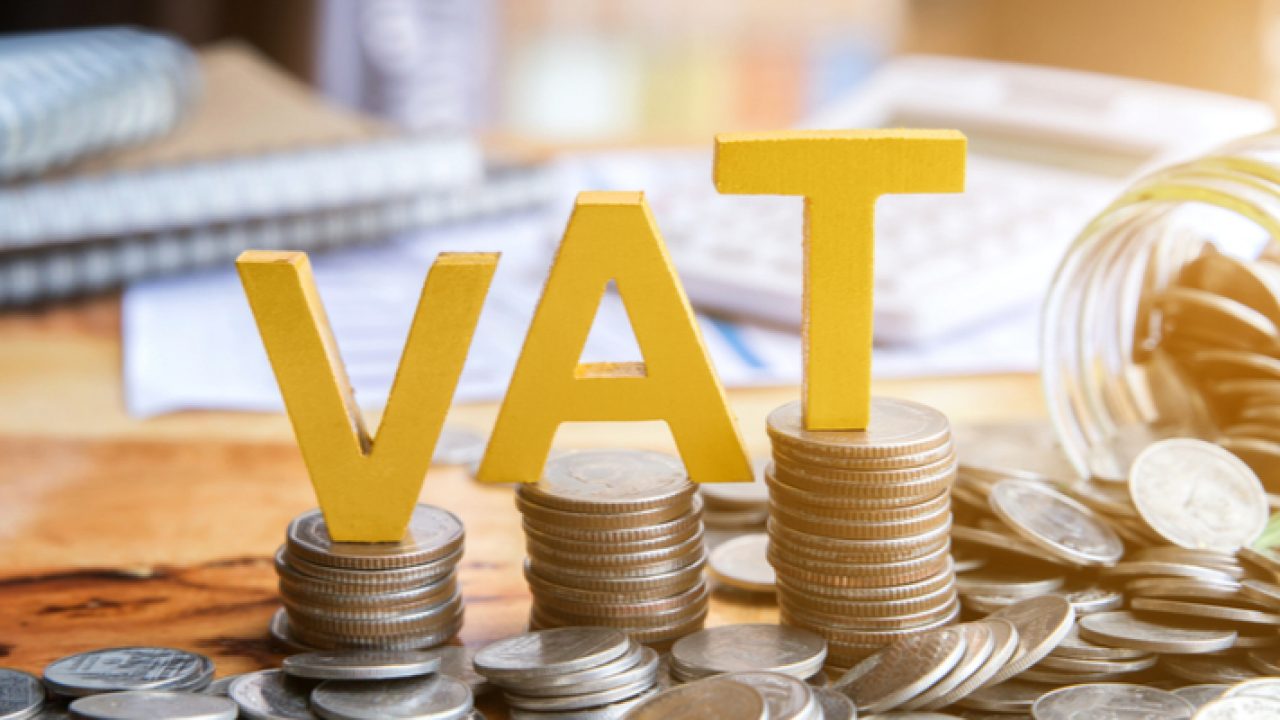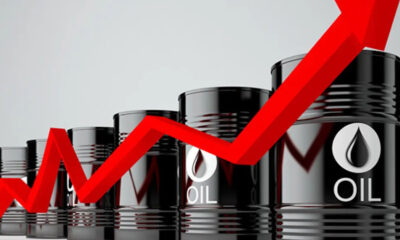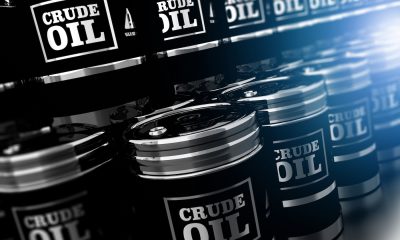Business
Remove VAT on diesel. MAN tells FG

The Manufacturers Association of Nigeria (MAN) has asked the Federal Government to remove the value added tax (VAT) on diesel as an instant stimulus for an immediate price reduction.
Segun Ajayi-Kadir, director-general, MAN, made the call in a statement issued on Saturday in Lagos.
The association also called on the federal government to avert the total shutdown of production operations, adding that industries were being converted to warehouses of imported goods and event centres.
“MAN is greatly concerned about the implications of the over 200 per cent increase in the price of diesel on the Nigerian economy and the manufacturing sector in particular,” the statement reads.
“More worrisome is the deafening silence from the public sector as regards the plight of manufacturers.
“As a matter of urgency, the government should address the challenge of repeated collapses of the national grid which is causing acute electricity shortage, especially for manufacturers.”
The group also urged the government to develop a response strategy to address challenges emanating from the armed conflict between Russia and Ukraine.
“In light of the gravity of the precarious situation that we have found ourselves as a nation and the looming dangers ahead, the expectations of manufacturers in Nigeria are as follows: that government should urgently allow manufacturers and independent petroleum products marketing companies to also import AGO (diesel) from the Republic of Niger and Chad by immediately opening up border posts in that axis to cushion the effect of the supply gap driven the high cost of AGO (Automotive Gas Oil),” it said.
The association also requested the government to “issue licences to manufacturing concerns and operators in the aviation industry to import diesel and aviation fuel directly to avert the avoidable monumental paralysis of manufacturing activities arising from total shut down of production operations and movement of persons for business activities”.
“More worrisome is the deafening silence from the public sector as regards the plight of manufacturers. Four obvious questions that readily come to mind that are seriously begging for answers are: What can we do as a nation to strengthen our economic absorbers from external shocks? Should manufacturing companies that are already battered with multiple taxes, poor access to foreign exchange, and now over 200 per cent increase in the price of diesel be advised to shut down operations? Should we fold our arms and allow the economy to slip into the valley of recession again? Is the nation well equipped to manage the resulting explosive inflation and unemployment rates?” it added.
It also implored the government to continue to support manufacturing to accelerate recovery from COVID-19 and previous bouts of recession.AN said this was to avert the complete shutdown of factories nationwide with a multiplier effect on employment.
The MAN also asked the federal government to “as a matter of priority develop a National Response and Sustainability Strategy (NRSS) to address challenges emanating from the ongoing invasion of Ukraine by Russia”.
The MAN also called on the government to “address the challenge of the repeated collapse of the national grid (twice within a week), which is causing acute electricity shortage in the country, especially for manufacturers”.
It demanded that the government should “remove VAT on AGO as an instant stimulus for an immediate price reduction and expedite action in reactivating or privatising the petroleum products refineries in the country”.
It also demanded that the government should “restrict the export of maize, cassava, wheat, food-related products and other manufacturing inputs available in the country; and grant concessional foreign exchange allocation at the official rate to manufacturers for the importation of productive inputs that are not locally available”.
The association represents over 3,000 manufacturers across 10 sectors, 76 sub-sectors, and 16 industrial zones.
Auto
Massilia Motors launches new Mitsubishi L200 with low fuel consumption, advanced engineering

Massilia Motors launches new Mitsubishi L200 with low fuel consumption, advanced engineering

L-R: CFAO Nigeria Country Delegate, Mr. Regis Tromeur; GMD/CEO, Kewalram Chanrai Group, Mr Siva Subramaniam; Deputy Managing Director, CFAO Mobility, Mr. Kunle Jaiyesimi; Managing Director of Massilia Motors, Olivier Lamoure; and General Manager, Sales, Massilia Motors, Mr. Tunji Itiola at the launching of the All-New Mitsubishi L 200 at Eko Atlantic, Lagos …on Friday, April 11, 2025
The all-new Mitsubishi L200 pickup, a 2025 edition, has been formally unveiled in Nigeria, courtesy of Massilia Motors.
Massilia Motors, the sole distributor of Mitsubishi brand of vehicles in the country and a joint venture with CFAO Mobility, says the new L200 pickup is coming with low fuel consumption, advanced engineering and ultra-tough characteristics, making it a versatile vehicle for various terrains and conditions.
The unveiling event took place at Eko Atlantic, Victoria Island, Lagos, where guests had the opportunity to experience the new pickup firsthand.
The new L200, already recognized worldwide and well-known in Nigeria, has been completely redefined in this latest model.
It features advanced engineering and ultra-tough characteristics, making it a versatile vehicle for various terrains and conditions.
The L200 is equipped with an All-New Chassis frame for improved ride and handling; lessen noise and vibration; durability; anti-corrosion; crash safety; better body size and wider interior.
The chassis frame is built with high-tensile materials to withstand tough terrain and ensure reliable performance in any condition, complemented by a redesigned suspension system.
Inside, the L200 is designed for comfort, even during long trips, with advanced technology and a thoughtfully crafted living space, according to Massilia.
The new suspension fine tune has some unique features that include Front – Double wishbone that is optimized longer stroke by geometry; Rear – Leaf spring (3 layers) with less friction.

The vehicle, powered by a six-speed manual gearbox on a 2.4-litre petrol engine, features a distinctive grille and appearance, and has won several awards, including the 2024-2025 Japan Car of the Year Design Award.
Built on inherited Pajero DNA with 4WD performance for reliability and ruggedness, Mitsubishi’s Anti-lock braking system (ABS) and Electronic Brake Force Distribution applies brake force while cornering to maintain vehicle stability and optimize traction, preventing torque loss.
The system adjusts engine output and applies brake force to spinning wheels as needed, always ensuring driver safety.
Mitsubishi has also focused on driver and passenger comfort with newly designed seats inspired by their rally heritage, providing excellent body support.
The upgraded air-conditioning system offers adjustable airflow for personalized comfort. Ample storage space and a bucket space of up to 2340mm x 1580mm makes it ideal for various tasks.
Other interior features include a 9-inch infotainment system and a new 7-inch multi-information display and outstanding cabin comfort because of better head and leg room for passengers.
The vehicle is designed to provide slip-resistant footing for safe and easy entry and exit, even in wet or slippery conditions.
The rear bumper corner allows for more foot space when the tailgate is open, featuring the largest step area in its segment.
Managing Director of Massilia Motors, Olivier Lamoure, highlighted the fact that the new L200 comes with lower fuel consumption aided by improved Aero Dynamics with roof and rear spoiler combination.
Another striking feature of the new vehicle is its enhanced cargo and payload capacity with improved turning radius of 6.2m from 5.9m, as well as higher ground clearance from 200mm to 212mm all to guarantee better driver manoeuvrability.
Lamoure added, “At Massilia Motors, it is important for us to give the keys to the customer so they can personally test the vehicle and share their impressions.
“Whether for personal use or for their business, performance and reliability are proven in the field, not in a showroom. This hands-on approach allows customers to truly experience the vehicle’s capabilities.”
Massilia Motors says it also offers prospective customers free test drive which can be booked via www.mitsubishi-motors.com.ng , where further information about the vehicle can also be obtained.
The L200 has a rich history, tracing its roots back to the Forte launched in 1978. Over the past 47 years, about 5.7 million units have been produced across five generations and sold in approximately 150 countries. The latest model continues this legacy with its high-rigidity RISE body, designed to absorb energy and minimize cabin deformation in the event of a crash.
The L200 has also received international accolades, including a five-star rating from Latin NCAP and recognition at the 2024 Arab Car of the Year awards, where it was named “Best Mid-size Pickup”.
Massilia names variants available for the Nigerian market as the Double Cab and Single Cab, adding that it offers genuine spare parts, after-sales services, and a warranty of three years or 100,000km.
Railway
NRC suspends Warri-Itakpe train after multiple engine failure

NRC suspends Warri-Itakpe train after multiple engine failure
The Nigerian Railway Corporation (NRC) on Thursday announced the suspension of its Warri-Itakpe train service, after it experienced multiple technical issues.
The standard gauge train was said to have broken down midway on Tuesday, creating some panic situation among passengers on board.
It said in a statement that the decision to suspend the train operation would allow its technical team “to conduct a full audit, resolve all identified issues, and restore safe and reliable service.”
The NRC statement signed by Henrietta Eregare of the NRC Public Relations Department, read in part, “The Nigerian Railway Corporation (NRC) wishes to inform the general public and our valued passengers that a significant disruption occurred on the Warri-Itakpe rail line on Tuesday, April 9, 2025, due to multiple technical issues involving a train engine failure.
“Management has consequently suspended train services on the route for 72 hours.
“The disruption commenced at approximately 1:38pm and affected both the 8am departure from Warri and the 2pm train from Itakpe.
“Emergency recovery protocols were immediately activated but also suffered a setback due to engine failures.”
It recalled how the corporation swiftly arranged for the safe evacuation of all passengers through road transportation with adequate security presence.
“Passengers were guided off the affected train to waiting cars approximately 500 meters from the track.
It stated, “Some Passengers chose to arrange their own transportation before the arrival of official recovery vehicles—a decision NRC understands given the delay.”
The corporation also disclosed that adequate arrangements had been made for a full refund of the value of tickets to passengers involved in the disrupted trains.
Those interested in using their tickets for future trips can take advantage of the revalidation option, according to the NRC.
“Refund and revalidation process is available on our online ticketing platforms, via our customer service lines, and at all NRC stations,” the statement added.
It expressed regret for the inconvenience caused by the unexpected disruption.
It said, “The Nigerian Railway Corporation takes full responsibility and is actively working to restore normal operations as quickly as possible. We remain committed to the safety, reliability, and comfort of our passengers.”
Business
BREAKING: Dangote Refinery slashes petrol price to ₦865

BREAKING: Dangote Refinery slashes petrol price to ₦865
The Dangote refinery has informed marketers and its customers of a downward review of its ex-gantry loading cost to ₦865 per litre.
The new price is N15 less than the facility’s previous price of N880 per litre sold Wednesday.
Our correspondent learnt that the refinery alerted its clients via a notification sent out on Thursday morning.
Our correspondent gathered that the Dangote refinery informed its customers in a notice sent out on Thursday morning.
Remember that marketers had exclusively informed that the 650,000-barrel Dangote refinery was expected to reduce its petrol loading costs by the end of this week, further adding to the decline in fuel prices.
Chinedu Ukadike, the National Publicity Secretary of the Independent Petroleum Marketers Association of Nigeria, reassured the public about the price drop while responding to the Federal Executive Council’s direction on the naira-for-crude arrangement.
Following an initial delay, the Federal Executive Council directed on Wednesday that the suspended Naira-for-Crude arrangement with local refiners be fully implemented.
It stated that the initiative with local refineries is not a temporary measure but a “key policy directive designed to support sustainable local refining”.
READ ALSO:
- Naira down to N1,620 in parallel market
- INEC names Sam Olumekun as acting chairman
- My daughter worked for Buhari for 5 years without pay – Buba Galadima
The Ministry of Finance announced this in a statement published on its official X handle titled “Update on the Crude and Refined Product Sales in Naira Initiative”.
The statement was released following a meeting on Tuesday between the Minister of Finance, Wale Edun, and representatives from Dangote Refinery, a major beneficiary of the agreement, to review progress and address ongoing implementation matters.
The committee stated that the policy is not a temporary measure but rather a long-term strategy to reduce Nigeria’s reliance on foreign currency for petroleum.
It further stated that the effort is not a one-time or limited intervention but rather a fundamental policy direction aimed at promoting sustainable local refining and bolstering energy security.
The statement read, “The Technical Sub-Committee on the Crude and Refined Product Sales in Naira initiative convened an update meeting on Tuesday to review progress and address ongoing implementation matters.
“The stakeholders reaffirmed the government’s continued commitment to the full implementation of this strategic initiative, as directed by the Federal Executive Council.
“Thus, the Crude and Refined Product Sales in Naira initiative is not a temporary or time-bound intervention but a key policy directive designed to support sustainable local refining, bolster energy security, and reduce reliance on foreign exchange in the domestic petroleum market.”
BREAKING: Dangote Refinery slashes petrol price to ₦865
-

 metro1 day ago
metro1 day agoKidnapping: Our lives are hanging by a thread, residents of Igbogbo-Baiyeku communities in Lagos cry out
-

 International2 days ago
International2 days agoUS announces new visa requirements for Nigerian applicants
-

 International1 day ago
International1 day agoUS embassy announces new visa interview requirements for Nigerian applicants
-

 Sports1 day ago
Sports1 day agoBreaking: Former Super Eagles coach Christian Chukwu passes away at 74
-

 Politics2 days ago
Politics2 days agoAtiku leads Tambuwal, El-Rufai, others to Buhari as 2027 election draws near
-

 Sports2 days ago
Sports2 days agoCristiano Ronaldo ventures into movie industry, unveils new studio
-

 metro2 days ago
metro2 days agoIbadan Pastor ends 30-year-marriage over sex dispute with wife
-

 Education2 days ago
Education2 days agoSanwo-Olu gifts LASU best graduating student N10m













